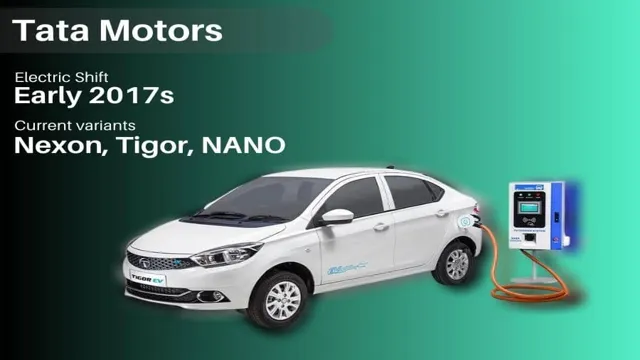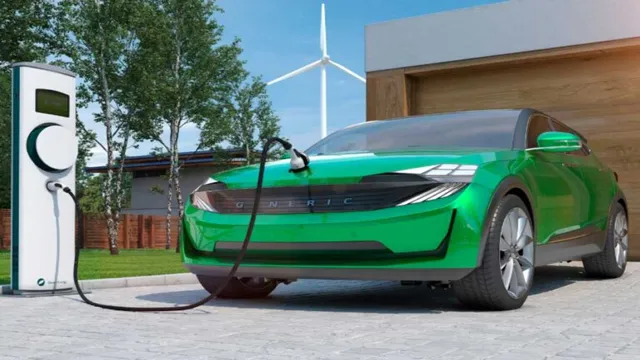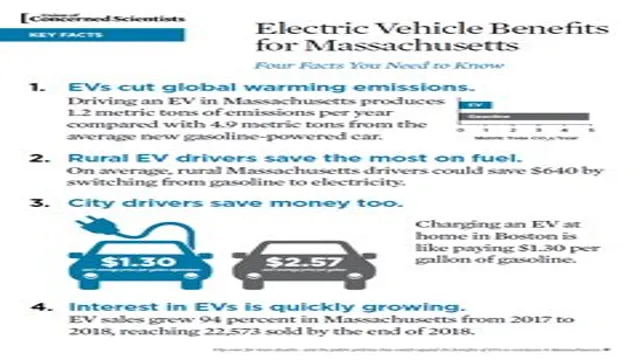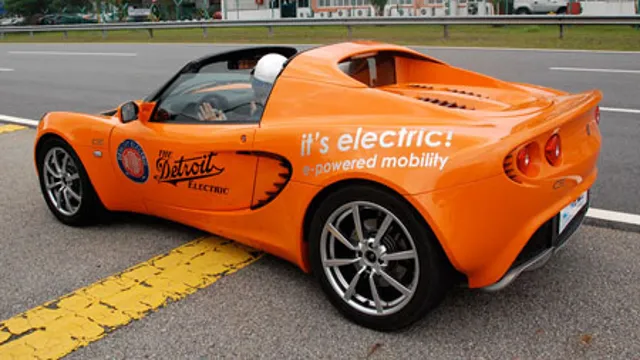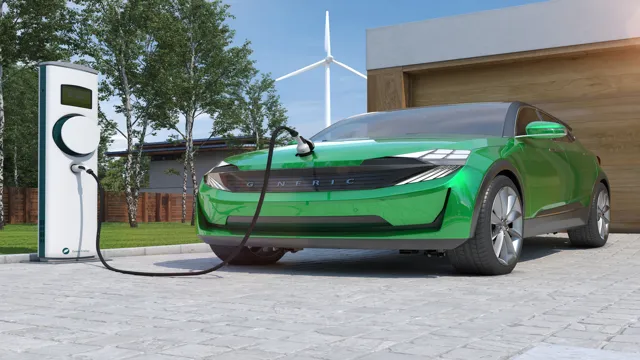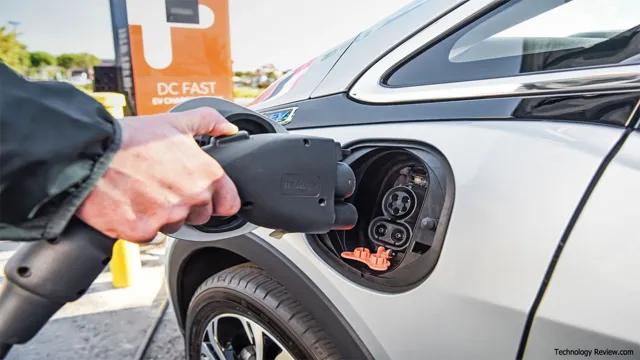Powering Up: 5 Indian Companies Set to Benefit from the Electric Car Revolution
India is no stranger to innovation and advancement in technology, and this is evident in the country’s growing interest in electric cars. With a focus on sustainability and efficiency, electric cars are gradually gaining momentum in the Indian automobile market. This blog post aims to shed light on the state of electric cars and companies in India.
We will explore the current status of the electric car industry, major players, and what the future may hold for electric car enthusiasts. From Mahindra’s e2o to Tata Motors’ Nexon EV, electric cars are making strides in India’s automobile market. The country has a unique ecosystem for electric cars, with government incentives and policies promoting electric mobility.
Some of the most significant players in this space include Tata Motors, Mahindra & Mahindra, Hyundai, and MG Motors. But what about the charging infrastructure and overall market share of electric cars in India? In this blog post, we will dive deep into the nuances of electric car adoption in India and provide an in-depth analysis of the challenges and opportunities in the industry. So if you’re interested in learning more about the state of electric cars in India, then keep reading! We’ll explore the reasons why electric cars are becoming increasingly popular, the benefits they offer, and the companies leading the charge towards a more sustainable future.
Potential Market
With the increasing demand for electric vehicles in India, several companies are set to benefit from this transition. One of the largest beneficiaries is expected to be the Indian automobile industry, including Tata Motors, Mahindra Electric, and Hero Electric. These companies have already started investing in R&D for electric vehicles and have launched various models for the Indian market.
Additionally, electric car charging station providers such as NTPC, ABB India, and Fortum India are also expected to see a rise in demand for their services. Other companies that could benefit from the electric car market in India include battery manufacturers like Exide Industries and Amara Raja Batteries, as well as renewable energy companies like Tata Power and Adani Green Energy. Overall, the shift towards electric cars in India presents a huge opportunity for several companies across various sectors to grow and diversify their businesses.
Expected Rise in Demand for Electric Cars in India
With the growing concern for pollution and environmental sustainability, there has been a surge in the popularity of electric cars in India. A potential market, the demand for electric cars in India is expected to rise significantly in the near future. With various factors such as government incentives, increasing fuel prices, and the push for renewable energy, electric cars are becoming more attractive to the Indian consumer.
Additionally, the COVID-19 pandemic has resulted in a shift towards personal transportation rather than public transportation, further contributing to the potential market for electric cars in India. While the current market share for electric cars in India is relatively small, the growing interest in eco-friendly and sustainable transportation options suggests that electric cars may become more prevalent in the years to come. As companies continue to develop innovative and affordable electric cars, the potential for the Indian market to become a major player in the global electric car industry is promising.
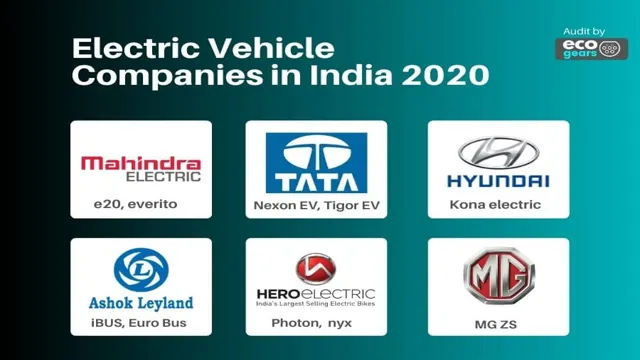
Government Initiatives to Boost Adoption
In order to boost adoption of electric vehicles (EVs), governments around the world have implemented a number of initiatives. One potential market for EV adoption is government fleets, which can be mandated by policy to switch their vehicles to electric alternatives. In the United States, the Biden administration has put forth a plan to replace the entire federal vehicle fleet with zero-emission vehicles, including EVs.
This could potentially serve as a catalyst for other government fleets to follow suit. In addition to government fleets, many countries have implemented EV subsidies, tax incentives, and infrastructure investments to increase consumer adoption. For example, Norway has the world’s highest EV adoption rate, in part due to government incentives such as no import tax or value-added tax for EVs, free tolls and public parking, and access to bus lanes.
Initiatives like these can help make EV ownership financially feasible for more consumers, and encourage broader adoption of electric vehicles.
Companies Leading the Charge
As electric cars continue to gain traction in India, there are a few companies that are leading the charge in producing and promoting them. One of these companies is Tata Motors, which has been investing heavily in electric vehicle technology and recently launched its Nexon EV. Another major player in this space is Mahindra & Mahindra, which currently sells the e2oPlus and is set to launch the eKUV100 soon.
Additionally, companies like Hero Electric and Ather Energy are focused exclusively on electric vehicle production, with a range of bikes and scooters already available and more in development. With the Indian government’s push towards electric mobility, these companies are poised to benefit greatly in the coming years.
Tata Motors and its Electric Cars
Tata Motors has taken a bold step towards reducing carbon emissions by venturing into electric cars. As more and more people are opting for environmentally friendly transport options, Tata Motors’ electric cars are leading the charge towards a carbon-neutral future. The company’s electric cars boast impressive features such as extended battery life, fast charging capabilities, and low operating costs.
The Tata Nexon EV, in particular, has been making waves in India with its sleek design and state-of-the-art technology. Tata Motors’ dedication towards sustainable and ethical practices make them a leading contender in the race towards a greener future. By investing in electric cars, they are not only paving the way for a cleaner environment but also showcasing their commitment towards sustainable living.
As more and more companies follow in their footsteps, we can only hope for a world where electric cars reign supreme as the primary mode of transportation.
Mahindra’s Electric Car Lineup
Mahindra, electric car lineup, companies, leading the charge Mahindra is a notable name in the world of automobiles, with a lineup of electric cars that has been catching the attention of people all over. They are one of the companies leading the charge towards a more sustainable and eco-friendly future, with a range of electric vehicles that cater to different needs and preferences. Whether you’re looking for a compact city car or a spacious SUV, Mahindra has got you covered.
Their electric car lineup includes models like the e2oPlus, the eKUV100, and the eVerito, all of which are designed to provide a reliable and efficient driving experience. What makes Mahindra’s electric cars stand out is the attention to detail that has gone into their production, with a focus on quality, performance, and user-friendliness. So if you’re looking for an electric car that delivers on all fronts, then Mahindra is definitely a company worth considering.
Hyundai’s Electric Cars in India
Hyundai’s electric cars have been making waves in the Indian market, with a number of companies leading the charge towards sustainable transportation options. One such company is NEXA, which has become a popular choice for those who value efficiency and eco-friendliness. NEXA offers a range of electric vehicles that are designed to meet the needs of modern drivers, including the Kona Electric and the Ioniq.
These cars are not only highly-efficient, but they also come equipped with advanced features such as regenerative braking, which helps to recoup energy lost during deceleration and braking. With innovative designs and cutting-edge technology, Hyundai is proving that electric cars are the future of transportation in India and beyond. So, whether you are on the lookout for a car that is both practical and environmentally sound or simply want to be a part of the growing trend towards electric vehicles, the Hyundai electric car range is definitely worth a look.
Opportunities for Other Companies
India’s push towards electric cars has opened up numerous opportunities for other companies as well. Companies manufacturing electric vehicle components, charging infrastructure, and renewable energy technologies are expected to benefit greatly from the shift towards electric transportation. Bharat Heavy Electricals Limited (BHEL) is already set to benefit as it is providing charging infrastructure for electric vehicles in various cities in India.
Additionally, companies like Mahindra Electric, Tata Power, and ABB India are likely to benefit from the growth of the electric vehicle market in India. Moreover, renewable energy companies such as Suzlon Energy and ReNew Power will benefit from the increased demand for clean energy to power these electric vehicles. As the Indian government continues to actively promote electric vehicles, the market presents a fertile ground for companies to expand their offerings and tap into a growing customer base.
Battery Manufacturing and Charging Infrastructure
As electric vehicles continue to increase in popularity, other companies have the opportunity to enter the market by getting involved in battery manufacturing and charging infrastructure. Battery technology is constantly evolving, presenting opportunities for companies to develop more efficient and cost-effective batteries. As the demand for electric vehicles grows, so does the need for charging infrastructure.
This presents an opportunity for companies to provide charging solutions for homes, businesses, and public areas. In addition, there is potential for companies to create partnerships with automakers to provide charging services and develop new technologies. Companies that are able to successfully enter this market will have the potential for significant growth and profits.
It’s an exciting time for the electric vehicle industry, and there are plenty of opportunities for companies to get involved.
Ride-Hailing Services with Electric Cars
Ride-hailing services are a growing trend worldwide, and the introduction of electric cars has opened a new realm of opportunities for companies. For instance, car manufacturers can partner with ride-hailing companies to provide electric cars that are both eco-friendly and cost-effective for drivers. Similarly, charging stations can be built to support ride-hailing services, ensuring a steady supply of electric cars on the road.
Moreover, companies that produce renewable energy sources can partner with ride-hailing services to ensure that the electricity used to charge the electric cars is green. All these opportunities not only benefit the companies involved but also contribute to the reduction of carbon emissions and the safeguarding of the environment.
Conclusion
In conclusion, it is clear that electric cars are the future of transportation in India. As the nation’s government continues to push for reduced emissions and sustainable energy practices, we can expect to see a surge in demand for electric vehicles. Companies at the forefront of this movement, such as Tesla and Mahindra Electric, are poised to reap the benefits of this transition.
However, it is important to note that any company willing to adapt to the changing times and embrace the advantages of electric technology will be well-positioned to thrive in the Indian market. So, strap on your seatbelts and get ready for the electric ride of your life!”
FAQs
What are some Indian automobile companies investing in electric cars?
Some Indian automobile companies investing in electric cars include Mahindra & Mahindra, Tata Motors, and Hero Electric.
What government incentives are available for electric car companies in India?
The government of India offers incentives such as a reduced GST rate, tax exemptions, and financial subsidies to electric car companies in India.
How will the adoption of electric cars affect the oil and gas industry in India?
The adoption of electric cars in India will likely lead to a decreased demand for oil and gas, which could negatively impact the oil and gas industry in the country.
What are some challenges facing the growth of the electric car market in India?
Challenges facing the growth of the electric car market in India include high upfront costs, lack of charging infrastructure, and limited consumer awareness and acceptance.

